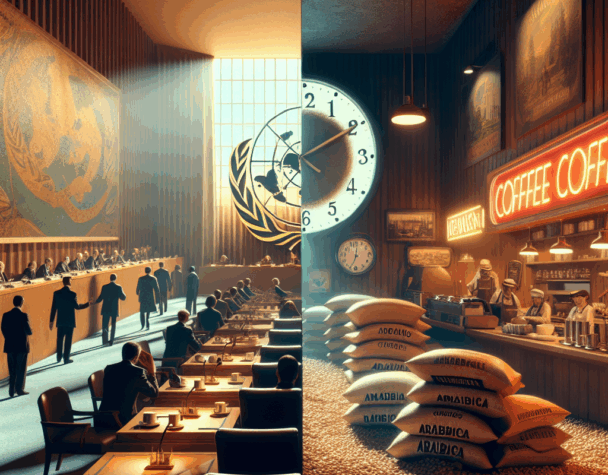
UN Keeps Iran Sanctions; US Bipartisan Coffee Bill
Sat, September 20, 2025Two event‑driven moves in the past 24 hours are worth immediate attention for investors: the U.N. Security Council chose not to lift sanctions on Iran and set a fast‑approaching deadline for a possible snapback, and a bipartisan pair of U.S. lawmakers announced legislation to remove recently imposed tariffs on coffee products. Both are policy actions with clear, tangible exposures — one broad and macro, the other narrow and sectoral.
What happened
UN keeps Iran sanctions in place, snapback deadline set
On Sept. 19, 2025 the U.N. Security Council voted against removing sanctions on Iran and signaled a window for negotiation rather than an immediate lift. Member states agreed to a timeline: if conditions — including restored access for international inspectors and substantive talks — aren’t met by a specified deadline (set for Sept. 27), prior U.N. measures could be reinstated automatically. The decision leaves a short, defined period for diplomacy while preserving the option to reimpose penalties.
Bipartisan U.S. bill seeks to repeal coffee tariffs
Also on Sept. 19, two U.S. Representatives announced a bipartisan bill to exempt coffee and related products from tariffs imposed earlier this year. The proposal targets roasted and decaffeinated coffee, husks and skins, and certain substitutes — effectively aiming to undo tariffs blamed for sharp arabica price moves and rising retail coffee costs.
Why these moves matter
Macro ripple effects from the Iran decision
The U.N. outcome raises immediate risk premia tied to energy and transport. A failure to reach terms by the snapback date could mean renewed restrictions on Iranian oil exports, higher insurance and war‑risk surcharges for tankers in the Gulf, and wider freight volatility. That threatens Brent and regional benchmarks, pushes up shipping costs, and can filter through to input inflation for energy‑intensive industries.
Beyond commodities, banks and corporates that operate in or around sanctioned jurisdictions face sharper compliance requirements and potential secondary‑sanctions exposure. Short timelines also compress market reactions: asset prices can move quickly as traders and risk managers reprice the odds of reimposition.
Niche but immediate consequences for coffee supply chains
The proposed tariff repeal is sector‑specific but material for several groups. Coffee roasters, quick‑service restaurants, grocery chains and commodity traders have already felt price pain from tariffs on Brazilian shipments — arabica futures climbed significantly after earlier measures. If the bill advances, it could ease input cost pressures for foodservice and consumer staples, and reduce pass‑through to grocery inflation.
Actionable implications and watchlist
- Energy traders and allocators: Monitor Brent, Middle East spreads, and tanker time‑charter and war‑risk insurance premiums. Position sizing should reflect heightened likelihood of episodic spikes before or after the snapback deadline.
- Shipping and logistics: Track Baltic or tanker indices and any carrier notices about route insurance surcharges. Expect short‑term capacity and rate volatility on Gulf‑to‑Asia routes.
- Banks and multinational compliance teams: Review exposure to Iran‑linked counterparties, update screening rules, and prepare for faster KYC escalation if the snapback happens.
- Consumer staples & QSRs (coffee exposure): Follow legislative movement: bill introduction, committee assignment, and any White House comment. Hedging or inventory adjustments could be warranted if tariffs look likely to be rolled back.
- Commodity traders and soft‑commodity desks: Watch arabica futures and spreads between contract months; a credible path to tariff repeal could relieve recent backwardation and reduce short‑term upside pressure.
Bottom line
The U.N. decision introduces a tight policy window that elevates energy, shipping and sanctions‑compliance risk across portfolios — a true macro event with measurable transmission channels. The coffee tariff bill is narrower but concrete: it targets a specific cost input for foodservice and retail and could quickly change cost forecasts for companies exposed to roasted coffee and arabica beans. Both developments reward active monitoring of policy timelines and targeted hedging rather than broad, speculative repositioning.
